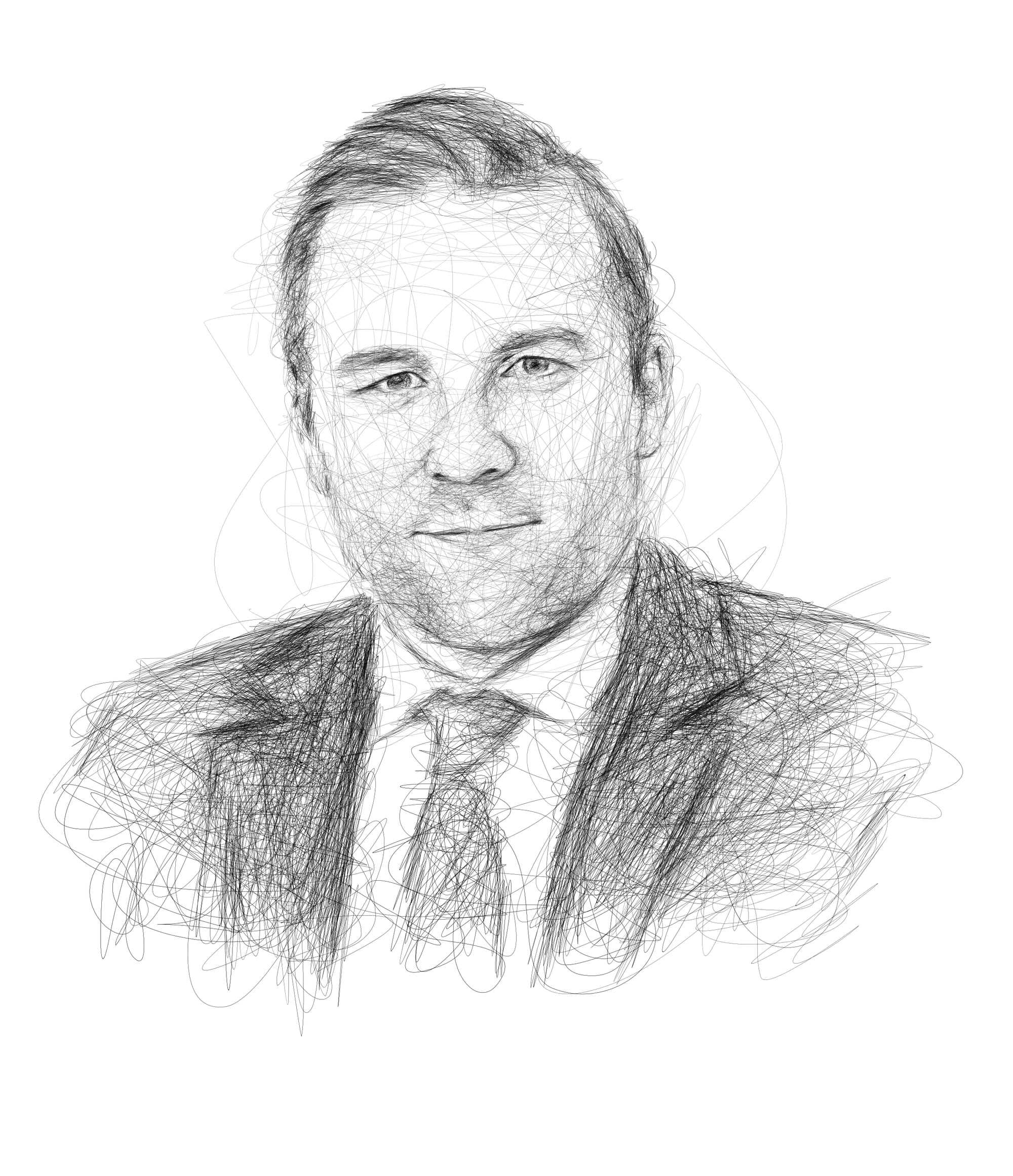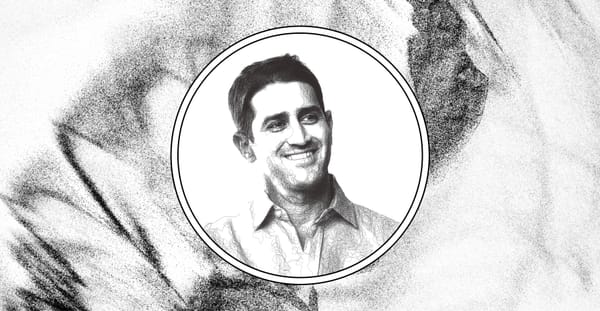Investing in the future of transportation with Trucks Venture Capital’s Reilly Brennan
Reilly Brennan is the founding partner at Trucks Venture Capital, a firm funding the entrepreneurs building the future of transportation.
Reilly Brennan is the founding partner at Trucks Venture Capital, a firm funding the entrepreneurs building the future of transportation.

What led you to co-found Trucks VC?
I’ve had a lifelong passion for cars, racing, and transportation. From the age of about five or six, I could identify cars just by their headlights and taillights at night. I was deeply immersed in this world. I’ve spent over 25 years in the automotive and transportation industry and eventually made my way into finance about 10-15 years ago before co-founding Trucks Venture Capital in 2015. It’s an early-stage fund I run alongside my partners Jeffrey, Kathryn, and Puneeth and we back aggressive ideas across the transportation landscape— automotive, rail, aviation, aerospace, trucking, bicycles, basically anything a kindergartener might draw on a piece of paper. Typically, we provide the first major investment for these companies, often being their first $1-2 million check. We’re excited to explore bold, creative, and even unconventional concepts. More specifically, we look to make transportation climate-positive.
You fund all across the board from EVs to e-commerce for vehicle dealerships, how do you identify the people building in the spaces that excite you?
These large industrial categories have cyclicality to them. If you only focus on one industry, there are periods when things are undervalued and then overvalued, so as an investor, you hit these fallow time windows which might put you outside your economic model. it’s just prudent for us to have an interest in opportunities across aviation, bicycles, charging, and other areas because of this cyclicality.
In terms of sourcing people, we have this newsletter that by internet scale is small but if you’re in the automotive transportation world, it’s closely read. Also, my Trucks partner Jeff has a patent firm so when people working in science and engineering come to Jeff for patent advice he lets them know we have a fund doing work in the transportation space. That’s been a tremendous source of opportunities.
The other thing is, once you start doing investments in certain categories, founders realize you’re willing to go into their world. Sometimes it is based on geography. The first time we made an investment in India, we probably only saw 10 companies from India in the previous year. After that investment, we saw 150 companies from India. The same goes for aviation and aerospace: once you invest in that space, people will bring you ideas. Today we see around 1,000 companies per year, all inbound. It wasn’t like that when we started. We probably only had 20 or 30 companies that first year.
Since you’re investing across such a wide range of technologies in the transportation space, how do you vet these founders and make decisions on these early-stage technologies?
A long time ago when I lived in the Bay Area, there was this cafe I would go to called Cafe Borrone in Menlo Park. It’s not a famous place, but if you sat there for a couple of hours, you’d overhear some interesting conversations, including a lot of angel investors meeting with Stanford PhD students working on startup ideas. What’s so odd and great about it is that these investors were usually making decisions based purely on how they felt about the founders themselves. Since it’s Menlo Park and the Bay Area, people can stumble onto something really remarkable. However, it’s hard to repeatedly make solid investments that way.
On the other hand, early-stage investors will sometimes try to be over-analytical, causing them to miss great opportunities. Both extremes are a little crazy: you don’t want to just shoot from the hip, but you also don’t want to overanalyze and crush a good idea when it’s just starting. At Trucks, we try to balance the two approaches.
We unpack the risks as much as possible from what founders tell us and don’t tell us about the business. Although we know a lot about their industry, I prefer when a founder is completely upfront about aspects they haven’t figured out yet. My analogy is like an honest online dating profile: you might as well be upfront about incomplete areas instead of saying everything is solved. We find second or third-time founders are more open, saying “We don’t have this figured out, but if we get funded we’ll hire this person to handle it.” That honesty allows us to better evaluate the risks. We also have two questions at the bottom of our evaluation form: “Would I recommend my spouse work here?” and “Would I advise a friend to invest?” These get to the core of how we feel about riding with this team long-term. If we understand the risks and how to mitigate them, checking one or both of those boxes from those questions is a good sign to move deeper with the company.
Are there any unique challenges that founders in the transportation sector face?
In aviation, there are a lot of timelines and certifications, but every industrial category has regulations. However, you’d be surprised at how much the auto industry is self-regulated. If you think about how automobile companies build, design, and release products, many of the rules and the way we think about vehicles are self-regulated. Regulatory considerations are part of our early risk assessment with companies. From our perspective, we want to see someone who has either personally gone through regulatory processes before or has someone on the team who can help with that. In the last two or three years, we’ve done more aviation investing. In all those companies, the founders either had good prior experience working with the FAA, or they brought someone on board who had worked closely with the FAA before.
You’ve been following cars your entire life, what have been some unanticipated changes that have surprised you and how has this influenced the way you think about the future?
One interesting thing is the complicated nature of Tesla and how it sits within the political and technological landscape. As someone who writes our newsletter each week, I get equally accused of being both an Elon Musk fanboy and an Elon hater. I’ve come to appreciate that being somewhere in the middle is the only acceptable way when discussing technology publicly. If you’re too far on one side or the other, it becomes problematic. The real way forward is a balanced perspective.
What I find most fascinating is looking at it from the view that battery-electric vehicles are better for passenger cars. What Tesla has achieved is unbelievable – they account for half of all EVs on the road and have significantly shifted how we think about EVs. It’s a complicated company though. Culturally, people think a lot about what the company stands for beyond just electric versus gas/diesel powertrains – it’s about the fundamental nature of the company and vehicles overall.
Growing up, I know there have been situations like the Tylenol crisis where we demanded a closer relationship with the makers of products we buy. In today’s era of vehicle brands, consumers think a lot about the company behind the car or truck. I think one of the biggest future challenges is understanding how these brands exist within society and the good and bad impacts their reputations have on our choices.
Aviation innovation seems to have slowed down compared to the rapid advancements in the early 20th century. Do you think the industry will regain its momentum?
I’ve seen so many former NASA, JPL, and SpaceX people go into aviation and aerospace startups in just the last two or three years. I think part of it is that it’s really hard to work at places like SpaceX and JPL for a very long period. There’s been this happy accidental emergence of founders in the Long Beach and El Segundo areas building really interesting things.
As a child of the space age era, when I was 10 or 11, I raised some money to go to the US Space Camp in Huntsville, Alabama along with my classmates. After that, and particularly after Challenger, there was a belief that the American space innovation boom was over, at least until entities like SpaceX came along as a huge driving force. Based on the caliber of founders now in space innovation and commercial aviation, I think the next 20 years are going to be remarkable. There will be new companies built at the scale of Boeing, Grumman, and others. One of our biggest investments as a fund is a company called JetZero which has pioneered a new aircraft design. Even using off-the-shelf engines, their plane shape allows for dramatic fuel savings and efficiency. It’s intended as both a commercial airliner and for long-distance military refueling.
When you are thinking about investing and founders, what factors influence the success of an early-stage transportation startup outside of just the technology?
Across our whole portfolio, the better-performing founders are unusually good communicators with their team, board, and investors. That tends to be a leading indicator of competence. Our founders are generally brilliant when it comes to technical challenges, but communications ability is what rounds out an enterprise. I find it fascinating when you have someone who is technically very adept, but also appreciates how vital it is to communicate and over-communicate. As a CEO, it’s quite difficult to repeat the same message 14 different ways, but it’s so important.
HAUS specializes in public relations and creative services for deep tech startups.




